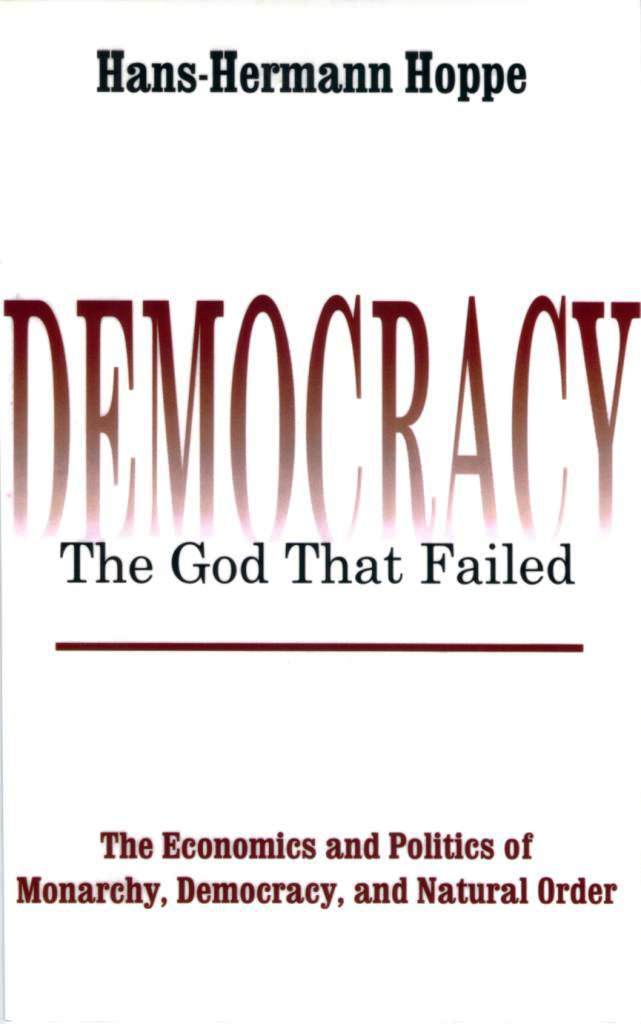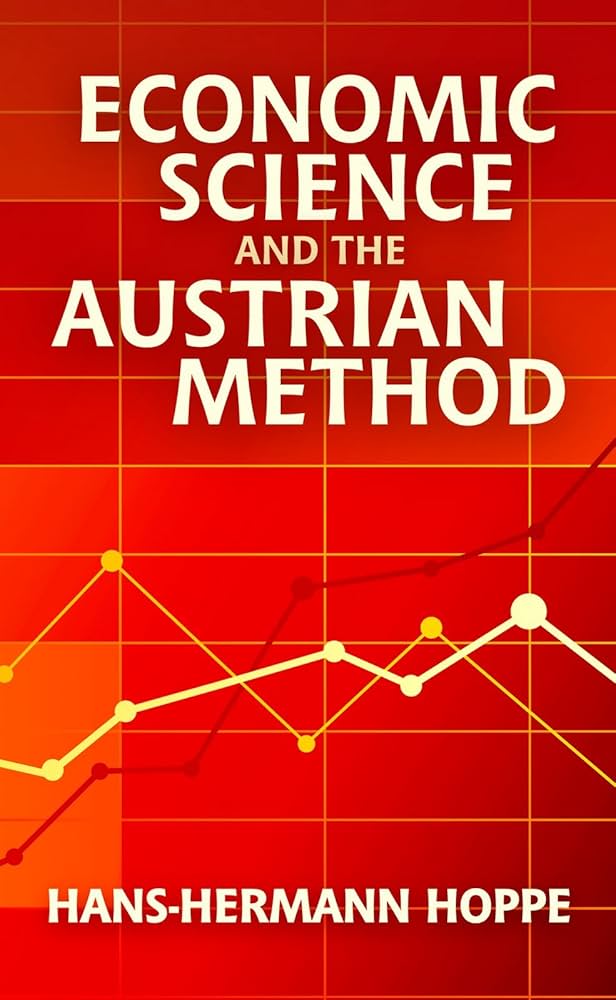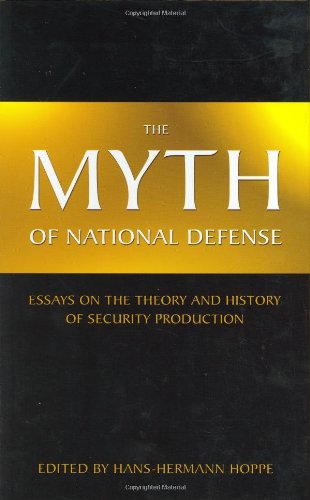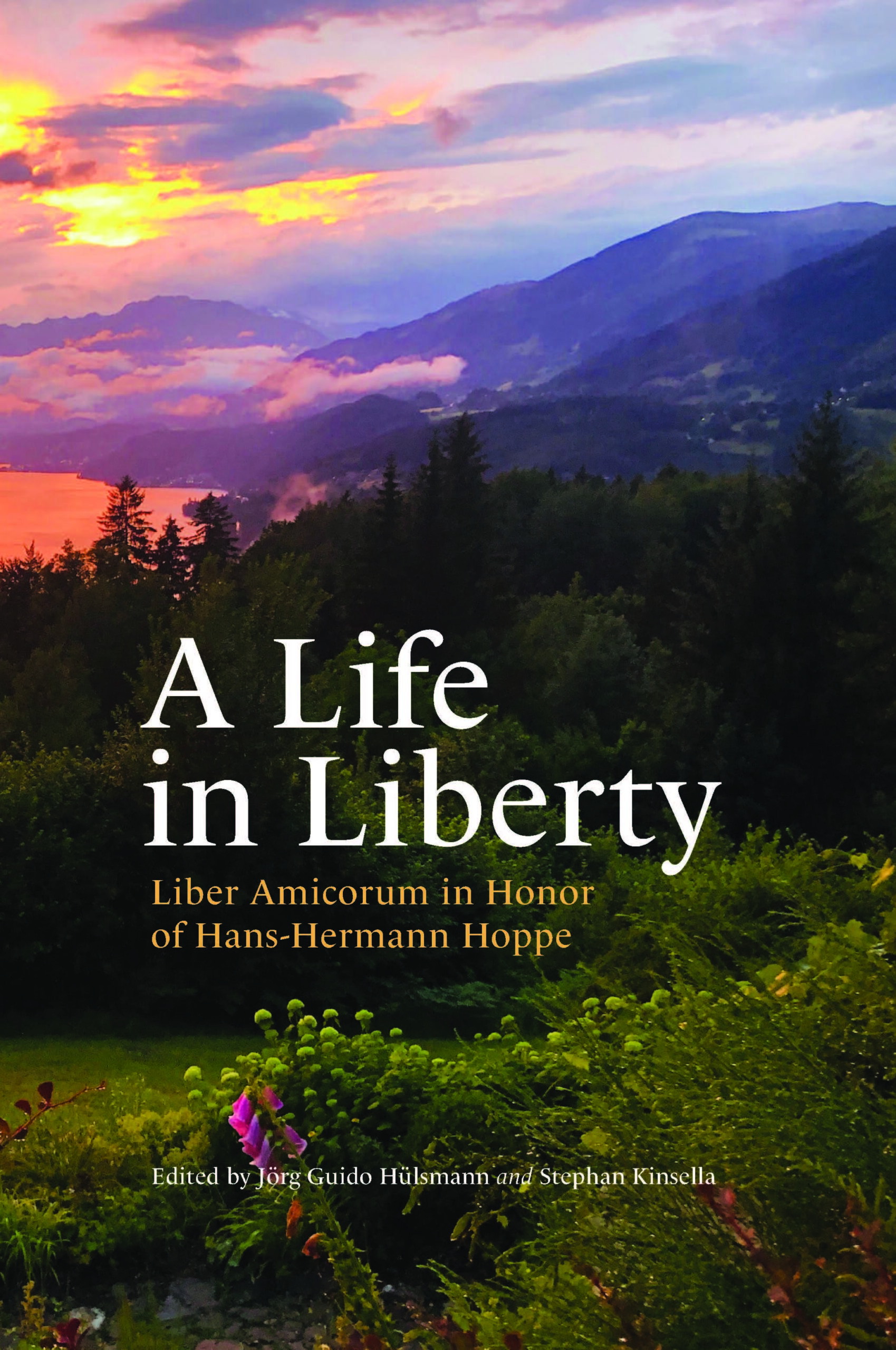The following interview, conducted by prominent Mexican journalist Sergio Sarmiento, took place in conjunction with the “Una vida por la libertad” award ceremony in honor of Hans-Hermann Hoppe in Mexico City on October 10, 2024. (Hoppe Receives Caminos de la Libertad “A Life for Freedom” Award.)
Libertad y Propiedad: Hans-Hermann Hoppe habla sobre la esencia del anarcocapitalismo (Freedom and Property: Hans-Hermann Hoppe talks about the essence of anarcho-capitalism)
Shownotes:
Philosopher Hans-Hermann Hoppe reflects on the importance of freedom in an era in which equality is considered a priority for many. For Hoppe, true freedom depends on private property, which allows people to act without restrictions from others. In this conversation, he also explains anarchocapitalism: a society governed solely by private law, without State intervention. Furthermore, it offers a critique of the policies of Javier Milei, who has presented himself as an anarcho-capitalist. Could there really be a society without a State?
Transcript and Grok shownotes below.
Grok Shownotes
Show Notes: Sergio Sarmiento Interviews Hans-Hermann Hoppe on Freedom, Property, and Anarcho-Capitalism
Episode Overview
In this thought-provoking episode, Sergio Sarmiento engages with renowned libertarian philosopher Hans-Hermann Hoppe to explore the enduring importance of freedom, the role of private property, the pitfalls of democracy, and the principles of anarcho-capitalism. Hoppe also offers a critical perspective on Argentine President Javier Milei’s policies, questioning their alignment with anarcho-capitalist ideals. This conversation delves into the philosophical and practical implications of a stateless society and challenges conventional views on governance and liberty.
Episode Links
- YouTube Video: https://www.youtube.com/watch?v=5pI5d7Prlyk
- Hans-Hermann Hoppe’s Website: https://hanshoppe.com/2024/11/freedom-property-anarcho-capitalism/
[0:00] Introduction
- Overview: The episode opens with introductory music, setting the stage for a deep dive into libertarian philosophy.
- Context: Sergio Sarmiento introduces Hans-Hermann Hoppe, a leading figure in libertarian thought and anarcho-capitalism, known for his rigorous defense of private property and skepticism of state power.
[0:30] Introducing Hans-Hermann Hoppe
- Guest Introduction: Sergio Sarmiento welcomes Professor Hans-Hermann Hoppe, a prominent libertarian scholar and author known for works like Democracy: The God That Failed and his contributions to Austrian economics and anarcho-capitalism.
- Key Points:
- Hoppe is recognized as a leading advocate for a private law society, emphasizing individual liberty and property rights.
- The interview aims to explore why freedom remains crucial in an era where other values, like equality, are often prioritized.
[1:10] The Importance of Freedom and Private Property
- Timestamp: 1:10–2:24
- Discussion: Sarmiento opens by asking why freedom is still important when some philosophers prioritize equality or other virtues. Hoppe articulates a foundational argument for liberty rooted in private property.
- Key Points:
- Freedom Defined: Hoppe defines freedom as the ability to act independently of others, which requires private property.
- Role of Private Property: Private property enables individuals to pursue their goals without needing permission from others, provided they do not infringe on others’ property.
- Core Principle: “Private property is essential for liberty, is absolutely essential for liberty.”
- Takeaway: Hoppe argues that private property is the bedrock of individual freedom, allowing people to control their resources and make autonomous decisions without external interference.
- Quote: “Freedom is nothing else but the ability to use your own property according to your own desires and your own wishes, without, however, of course, interfering with the physical property that belongs to other people.”
[2:25] Democracy as an Obstacle to Freedom
- Timestamp: 2:25–5:24
- Discussion: Sarmiento prompts Hoppe to elaborate on his critique of democracy, particularly its potential to undermine freedom and property rights. Hoppe contrasts two definitions of democracy and highlights their implications.
- Key Points:
- Two Definitions of Democracy:
- Ludwig von Mises’ View: Democracy as the right to secede, allowing individuals or groups to separate from those they disagree with, enabling self-rule.
- Traditional View: Democracy as majority rule, where the majority dictates rules, often overriding individual property rights.
- Critique of Majority Rule: Hoppe calls majority-rule democracy “a mild form of communism” because it allows an institution (the state) to interfere with individual property rights, even when no harm is done to others.
- Example: If a majority decides an individual cannot rent their property on an online platform, this violates their freedom, despite no damage to others’ property.
- Hypothetical Scenario: Hoppe illustrates with an example: if six out of ten people vote to redistribute his wallet’s contents, this fits modern democracy but violates liberty. In contrast, Mises’ view would allow him to secede and retain control over his property.
- Consequence: Under majority-rule democracy, individuals can become “slaves of the majority view,” losing autonomy over their property.
- Two Definitions of Democracy:
- Takeaway: Hoppe argues that traditional democracy, defined by majority rule, can erode freedom by allowing collective interference in individual property rights, whereas true self-rule requires the freedom to secede.
- Quote: “Under democracy, you can become a slave of other people, and you can become the slave of the majority view that people hold.”
[5:25] Defining Anarcho-Capitalism
- Timestamp: 5:25–9:23
- Discussion: Sarmiento asks Hoppe to define anarcho-capitalism, given his status as one of its foremost proponents. Hoppe explains the concept and addresses whether laws can exist without a state.
- Key Points:
- Anarcho-Capitalism Defined: A private law society where laws apply equally to everyone, based on private property, with no public property or public law.
- Public Law Critique: Hoppe views public law (state-made or majority-made law) as a violation of private property and freedom, not true law.
- Laws Without a State: Hoppe asserts that societies can function without a state, citing small villages where people resolve disputes through natural authorities—respected individuals whose decisions carry weight but are subject to scrutiny.
- Neutral Arbitration: In a stateless society, disputes are resolved by neutral arbiters, unlike the current system where state employees (e.g., judges) decide cases involving the state, creating a conflict of interest.
- Example: Hoppe notes that challenging a state law, such as taxation, is futile because state employees decide the outcome, predictably favoring the state.
- Takeaway: Anarcho-capitalism envisions a society governed by private law, where disputes are resolved by neutral, non-state actors, ensuring fairness and protecting property rights.
- Quote: “We must have a neutral arbiter that decides who is right in any type of conflict, rather than having one side of the two conflicting parties always having the last word.”
[9:24] Can Society Function Without a State?
- Timestamp: 9:24–10:03
- Discussion: Sarmiento challenges whether a stateless society is feasible or merely utopian. Hoppe responds by pointing to everyday examples of stateless cooperation.
- Key Points:
- Daily Life Without the State: Hoppe argues that most daily activities occur without state interference, as people in small communities naturally organize their affairs.
- Village Example: In small villages, people resolve disputes and manage relationships without external state intervention, relying on mutual cooperation and respected figures.
- Limited State Contact: Most individuals have little to no direct contact with the state in their daily lives, suggesting a stateless society is practical.
- Takeaway: Hoppe contends that stateless societies are not utopian but already exist in practice, as people naturally coordinate without state involvement in many aspects of life.
- Quote: “If you look around in your daily life, we live without a state. Most of our activities occur without state interference.”
[10:04] Critique of Javier Milei’s Anarcho-Capitalist Claims
- Timestamp: 10:04–15:49
- Discussion: Sarmiento asks Hoppe about Argentine President Javier Milei, who has declared himself an anarcho-capitalist. Hoppe offers a nuanced critique, acknowledging Milei’s improvements but questioning his adherence to anarcho-capitalist principles.
- Key Points:
- Context of Milei’s Reforms: Hoppe recognizes that Milei inherited a catastrophic economic situation in Argentina and has made some improvements, though this was “easy” given the low baseline.
- Taxation Critique: While Milei lowered some taxes, he also increased others, contradicting the anarcho-capitalist view that taxation is theft, imposed involuntarily and backed by the threat of imprisonment.
- Central Bank Failure: Milei promised to abolish Argentina’s central bank, which Hoppe sees as critical because central banks enable state power by printing money, fueling inflation and wars. However, Milei has not attempted to close the central bank, missing an opportunity to eliminate inflation, which Hoppe (and Milton Friedman) identifies as a purely monetary phenomenon.
- Foreign Policy Misstep: Hoppe’s strongest criticism is Milei’s alignment with the U.S. government, which he calls “the biggest imperialist country” and “war-monger” responsible for significant global deaths. Anarcho-capitalists advocate neutrality and non-intervention in foreign affairs, focusing only on defending their own country (e.g., Argentina).
- Defense of Critique: Hoppe clarifies that he does not dispute Milei’s improvements but questions whether his actions align with anarcho-capitalism, especially since Milei cites Hoppe and Murray Rothbard as influences.
- Takeaway: While Milei has implemented some libertarian-leaning policies, Hoppe argues his actions—raising taxes, failing to abolish the central bank, and aligning with U.S. foreign policy—violate core anarcho-capitalist principles.
- Quote: “The standard view of libertarians, of anarcho-capitalists, is you stay out of other countries’ affairs. You declare yourself neutral… He sided explicitly with the United States—not the population of the United States, but the government of the United States.”
[15:50] Conclusion
- Timestamp: 15:50–16:01
- Discussion: Sarmiento wraps up the interview, thanking Hoppe for the insightful conversation.
- Key Points:
- The discussion covered foundational libertarian concepts, including the centrality of private property, the flaws of democracy, the feasibility of anarcho-capitalism, and a critical assessment of Javier Milei’s policies.
- Hoppe’s perspective challenges listeners to rethink the role of the state and the meaning of freedom in modern society.
- Takeaway: The episode offers a rigorous exploration of anarcho-capitalist philosophy and its practical implications, urging listeners to consider alternatives to state-centric governance.
- Quote: “Thank you very much for this conversation.”
Additional Notes
- About Hans-Hermann Hoppe: A German-American philosopher and economist, Hoppe is a leading figure in the Austrian School of Economics and anarcho-capitalism. His works critique state power and advocate for a society based on private property and voluntary cooperation.
- About Sergio Sarmiento: A respected journalist and commentator, Sarmiento hosts discussions on political and economic issues, often engaging with prominent thinkers to explore ideas relevant to liberty and governance.
- Further Reading:
- Hans-Hermann Hoppe, Democracy: The God That Failed
- Murray Rothbard, For a New Liberty: The Libertarian Manifesto
- Ludwig von Mises, Liberalism
Transcript
0:00
Introduction
[Music]
0:30
Introduction of Guest
SERGIO SARMIENTO: Professor Hans-Hermann Hoppe.
0:39
[Music]
1:10
Discussion on Freedom and Private Property
SERGIO SARMIENTO: Professor Hoppe, thank you very much for this conversation, and let me start with freedom. Why is freedom still important at a time when some thinkers, some philosophers, believe that equality or maybe other virtues would be more important?
HANS-HERMANN HOPPE: Freedom is important because we have to be able to act independently of other individuals. And in order to act independently of other individuals, we need private property. Private property makes it possible for us to pursue our own individual goals without needing the permission of other people to do so. Freedom is nothing else but the ability to use your own property according to your own desires and your own wishes, without, however, of course, interfering with the physical property that belongs to other people. So, private property is essential for liberty, is absolutely essential for liberty.
2:25
Critique of Democracy
SERGIO SARMIENTO: You have been critical of democracy, and you have said that in some cases, democracy can be an obstacle to freedom and to, of course, private property rights.
HANS-HERMANN HOPPE: There are two definitions of democracy. Ludwig von Mises has given a definition that says democracy is the ability of people to decide that they want to separate from other people with whom they do not agree. In that case, you indeed rule yourself. So, he allowed secession and thought the secession of a group from a larger group would be the definition—what, the permission to secede from a larger group—that would be the definition of democracy. Then you rule yourself. But the traditional definition of democracy is, of course, majority rule. The majority determines what rules hold and what rules do not hold. And in that sense, democracy is, of course, a mild form of communism. It introduces majority rule. I can no longer determine what to do on my own with my own property, but there is an institution that can interfere with my property and can tell me, “You cannot do with your property what you want to do with your property,” despite the fact that you don’t damage anybody else’s property. So, if the majority, for example, decides that you should not use your property, you should not rent your property on an internet platform, they shouldn’t be able to say that, even if they’re the majority.
SERGIO SARMIENTO: Yes, they should not be able to say this.
HANS-HERMANN HOPPE: If we have a vote here in this room, and I don’t know how many we are here, of the 10 or 12 people that we have here, if six then say, “The wallet that Hoppe has in his pocket, that should be distributed equally among all of us,” that would fit the definition of modern democracy. Whereas the view of Mises would be, if I don’t like this type of decision, then I must have the right to secede from this group of people and do with my property what I want to do with my property. So, under democracy, you can become a slave of other people, and you can become the slave of the majority view that people hold.
5:25
Anarcho-Capitalism Explained
SERGIO SARMIENTO: You have been described as one of the world’s foremost representatives of anarcho-capitalism. What is anarcho-capitalism?
HANS-HERMANN HOPPE: Anarcho-capitalism is nothing else but a private law society. All laws hold for everybody equally, and the standard private law applies to everyone. There exists no such thing as public property or public law. Public law is, in the view of anarcho-capitalists, not law at all. It is a violation of private property and freedom. Public law is state-made law, majority-made law.
SERGIO SARMIENTO: But can we have laws without a state?
HANS-HERMANN HOPPE: Yes, we can have laws without the state. In every small village, you can see that people can arrange their own affairs. They have natural authorities—people who have prestige in a community, whose word counts for more than other people’s word. And whenever we have a dispute, we turn to those people, and those people then decide who is right and who is wrong. But those people themselves are also subject to further control. They can, again, in case people have the feeling that they’re making wrong decisions, they can also be accused of having committed a crime. And the difference to the current situation is, if you try to complain about a state law, the decision whether you are right or the state law is right is made by employees of the state itself. So, the problem—and I will speak in my little speech afterwards about this problem too—is no one in any conflict, it can never be the case that one of the parties in the conflict is the party that makes the decision. We must have a neutral arbiter that decides who is right in any type of conflict, rather than having one side of the two conflicting parties always having the last word. That’s what we have currently. Whenever you complain about a law that the state passes and go to court and complain about it, the decision whether you are right or the state is right will be made by a state employee, which makes it predictable what the outcome of this decision will be. If I go, for instance, and say, “Look, I never agreed to pay taxes,” and go to the Supreme Court and say, “I never signed a paper where I declared I will pay taxes,” there will not be independent third parties consulted—am I right, or is the state right? No, a state employee decides who is right, and of course, you can predict what the outcome of that will be. They will most likely not even hear my complaint; it will be dismissed out of hand.
9:24
Possibility of a Stateless Society
SERGIO SARMIENTO: But can we actually live in a society without a state, or is it just a utopia?
HANS-HERMANN HOPPE: If you look around in your daily life, we live without a state. Most of our activities occur without state interference. In every small village, you see that people arrange their own affairs without an external policeman coming and making a decision. Most people have never any contact with the state in their lives.
10:04
Evaluation of Javier Milei’s Policies
SERGIO SARMIENTO: Professor Hoppe, Javier Milei, the president of Argentina, has considered himself—has presented himself as an anarcho-capitalist. Do you think he’s an anarcho-capitalist, and what do you think of the policies that he’s conducting now?
HANS-HERMANN HOPPE: I have given recently an interview about this subject, and I have heavily criticized Mr. Milei. I have not disputed that what he has done has been a great improvement over the situation that existed previously. I think, in a way, it was easy to improve a situation that was as catastrophic as the situation in Argentina was. So, I admitted that he had done some good things. I also realized that he could not do everything that he wanted to do because the parliament—he needs certain majorities in order to make his decisions. On the other hand, because he declared himself to be an anarcho-capitalist and claimed that he had learned from Rothbard and from me what that is, I felt that I was entitled to criticize him from the point of view of an anarcho-capitalist. I have been criticized by people, “Yeah, but isn’t he better?” That was never in dispute. In dispute was only: does what he currently exercises, is that compatible with declaring himself an anarcho-capitalist? And there, I must say, there were certain things that were clearly violations of these principles. For instance, he did lower some taxes, but he also increased taxes, even though he said—and that is a view of anarcho-capitalists—that taxation is theft. People have never agreed to it; it was imposed on them. You will be jailed if you don’t pay your taxes; these are not voluntary payments. So, he did that. Then he said, “I would abolish the central bank.” The central bank is, from the point of view of state power, the most important institution because they can simply print money out of thin air. Without a central bank, you would have to rely entirely on taxes, and if you would have to rely entirely on taxes, the states could not do many of the things that they currently do. Imagine, for instance, how difficult it is to go to war without being able to print the money that is necessary to pay the soldiers, buy the weapons, and so forth, and only rely on contributions—tax contributions—that people make to it. Wars have been made much easier because of central banks, and they would be far more difficult without central banks. So, even though he promised he would do this, he has not done it. And I know, yes, he did need permission to do this, but he did not even try. He tried various other things and sought majorities for various other changes in legislation, but he did not make any attempt to close down the central bank. And if the central bank is closed down, then you can, of course, immediately get rid of the problem of inflation because inflation is solely caused by the printing of money. So, in that, a monetary phenomenon, as Milton Friedman used to say. In that regard, I’m not a Friedmanite, but in that regard, he is perfectly right. Inflation is a purely monetary phenomenon. But my most ardent criticism of him was his view that he takes on foreign policy. The standard view of libertarians, of anarcho-capitalists, is you stay out of other countries’ affairs. You declare yourself neutral. You declare, “I’m concerned about Argentina; I’m willing to defend Argentina, but what other countries do, I’ll keep my hands off the other countries.” And I do not intervene there. And there, he did something entirely different. He sided explicitly with the United States—not the population of the United States, but the government of the United States. And the government of the United States is currently the biggest imperialist country that we have, the biggest war-monger that we have, responsible for more deaths in recent decades than any other country. You don’t have to say it; you could have simply said, “I don’t say anything about these things, the policies of other countries.”
15:50
Conclusion
SERGIO SARMIENTO: Professor Hans-Hermann Hoppe, our time’s up, and thank you very much for this conversation.
HANS-HERMANN HOPPE: Thank you.
16:01
[Music]












Comments on this entry are closed.